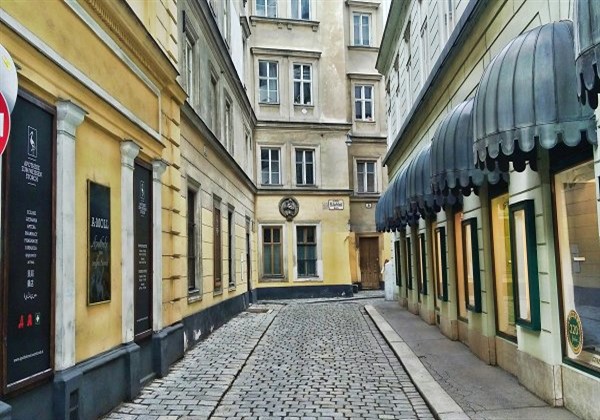
Sokağa Çıkma Kısıtlaması (23.04.2020 – 26.04.2020)
21 April 2020
Sokağa Çıkma Kısıtlaması (01.05.2020 – 03.05.2020)
30 April 2020The Circular on Lockdown dated April 28, 2020, declared by the Ministry of Internal Affairs introduced a lockdown in 30 major cities and Zonguldak for 3 days, starting on April 30. This document is aimed to provide guidance and clarity on the application of the Circular.
• What are the exact timing of the lockdown?
The lockdown will start on April 30, 2020, at 12 pm and last until May 3, 2020, at 12 pm.
The markets, groceries and greengrocers can be open from 9 am to 2 pm on Friday, May 1, 2020.
In order to maintain the supply chain, on Friday May 1, 2020, from 6 to 9 am, the markets and groceries; on Sunday May 3, 2020, after 6 pm, the persons dealing with transportation, storage, receipt and preparation to sale of the goods, materials and products at the markets and vegetable wholesale markets may work, on the condition of not making sales.
• Where will the lockdown take place?
Citizens residing in 30 major cities (Adana, Ankara, Antalya, Aydın, Balıkesir, Bursa, Denizli, Diyarbakır, Erzurum, Eskişehir, Gaziantep, Hatay, İstanbul, İzmir, Kahramanmaraş, Kayseri, Kocaeli, Konya, Malatya, Manisa, Mardin, Mersin, Muğla, Ordu, Sakarya, Samsun, Şanlıurfa, Tekirdağ, Trabzon, Van) and Zonguldak will be affected from lockdown.
• Which workplaces, enterprises and institutions will remain open during the lockdown?
Markets, groceries and greengrocers are allowed to remain open from 9 am to 2 pm on Friday May 1, 2020. All citizens, except those who are 20 years old and younger and those who are 65 years old and older, can go to the closest markets, groceries and greengrocers on foot, without using any sort of transportation. During these time slots markets, groceries and greengrocers can also make home-deliveries.
On Friday May 1, 2020, from 9 am to 2 pm, handicapped citizens are allowed to go to the nearest markets, groceries and greengrocers by using a vehicle.
Bakeries or shops which have baking license, as well as enterprises that are producing or selling desserts may remain open during the lockdown period, on the condition of selling only bread, baked goods and desserts.
Restaurants are allowed to operate during the lockdown, but for takeaway only.
On Friday May 1, 2020 within the hours where it is not allowed to go out and on Saturday May 2, 2020 and Sunday May 3, 2020, shops selling desserts may only do takeaway.
Workplaces that carry on business on manufacture, transport and sale of medications, medical devices, medical masks and disinfectants may remain open.
Public and private health institutions and organizations, pharmacies, veterinary clinics and veterinary hospitals may remain open.
Public institutions and organizations that are necessary to maintain the public services may remain open. The Circular lists airports, ports, border gates, customs, motorways, nurseries, geriatric care centers, rehabilitation centers, Emergency Call Centers, Disaster and Emergency Management Presidency teams, Vefa Social Support teams, Migration Management Office and post offices, as example.
Governorships and district-governorships will determine one gas stations and one tire repair shop per area, with a population of 50,000 people and for each 50 km of motorways. If there are more than one gas stations or tire repair shop in a 50 km, the one that may remain open will be determined by a draw.
Large facilities and enterprises that have a strategic role in the natural gas, electricity and petroleum industries will remain open. The Circular lists refinery and petrochemical plants and thermal power and natural gas plants as examples.
Potable water filling facilities and companies distributing potable water, newspaper and propane cylinder may remain open.
Animal shelters, animal farms and animal care centers may remain open.
Firms who are providing urgent construction and furnishing services that are aimed at improving the capacity of health services may remain open.
Manufacturers of staple food, such as pasta, flour and bakery products, milk, meat, fish are produced or hygiene products and their raw materials, especially paper, cologne may remain open, by obtaining permission of the Provincial Public Health Council.
Firms conducting national and international transport and logistics including import, export and transit passage may remain open.
Hotels and other accommodation establishments may continue to operate.
Manufacturing facilities providing packages to food, cleaning and pharmaceutical industries may remain open.
Large construction and mine sites where the employees lodge at work sites may remain open, as long as the work is limited to construction site or mine site. This exception is applicable only if employees lodge at the construction or mine site must.
The Circular explicitly forbids employees to travel to and from the worksite.
Newspaper, radio and television institutions and newspaper printing houses may continue to operate.
Manufacturers that are bound by a contract or an undertaking to produce goods, materials, products, and devices within a certain time in order to export may remain open on the condition they prove their undertakings and comply with the conditions herein.
Agricultural credit cooperatives that sell agricultural fuel and businesses that sell products for agricultural production such as agricultural pesticide, seed, seedling and manure, which will be determined by Governorship/District Governorship by a draw, may remain open.
Fruit and vegetable wholesalers will remain open on Friday May 1, 2020.
• Who are exempt from the lockdown restrictions?
All employees, managers and officers working at the workplaces, businesses and institutions that are allowed to remain open during the lockdown as listed above, are exempt.
All agents responsible for public order and security, including private security agents, are exempt.
All persons responsible for emergency call centers, Directorate of Disaster and Emergency Management, Turkish Red Crescent and Vefa Social Support teams are exempt.
Persons responsible for burial procedures and persons who will attend to their first-degree relatives’ funerals are exempt.
Persons responsible for maintenance and repair of the transmission and infrastructure systems that are not suppose to be interrupted, such as electricity, water, natural gas and telecommunications, are exempt.
Persons working in transportation and logistics of products and materials, national and international transportation, storage and related activities, including courier companies, are exempt.
Persons working at social protection/care centers such as geriatric care center, nursery, rehabilitation center, daycare centers, are exempt.
Persons with “special needs” such as autism, advanced mental retardation, down-syndrome and their tutors, custodians or their accompanists, are exempt.
Persons working in workplaces that must continue to operate, such as cold storages and high temperature blast furnaces, in the sectors such as iron-steel, glass, ferrochromium, are exempt.
Employees working at the information technology centers of businesses, institutions and organizations (primarily banks) that have nationwide service network, are exempt.
Persons responsible for production, processing, marketing and transportation of herbal and animal products that have risk of spoiling, are exempt.
Persons grazing cattle, small cattle animals and beekeepers, are exempt.
Persons who take their pets out to meet their needs, limited by the front of their residence, and persons who intend to feed stray animals, are exempt.
Veterinary surgeons are exempt.
Persons responsible for bread distribution are exempt.
Persons who have compulsory health appointments, including blood and plasma donation to the Turkish Red Crescent, are exempt.
Persons responsible for meeting the basic needs of persons staying at accommodation places for large groups, such as dorms, motels, and worksites, are exempt.
Employees, who cannot leave their workplace in order to not to cause an occupational health and safety risk, are exempt.
Technical service personnel are exempt on the condition of documenting their service.
The municipality personnel responsible for public transportation, cleaning, solid waste disposal, water and sewerage, disinfection, fire department and cemetery services, who are in duty during the weekend, are exempt.
Persons, who have permission from the Provincial Public Health Council, to continue their activities necessary for the sustainment of agricultural production such as sowing-planting, applying pesticide and irrigation, are exempt.
Employees working at the manufacturing and logistics of the explosives used at mining, construction and other large investment projects, are exempt.
• What are the documents that should be carried by persons who are exempt of the restrictions?
Police would generally inquire people about their purpose for leaving their premises, their workplaces and their specific duties. Therefore, it will be convenient for these persons to carry the Trade Registry Gazette showing the field of activity of their employer and their social security data printed out of Social Security Institution website. The exemptions do not apply to all employees in a workplace in a specific industry but only to those who work in certain departments. For this reason, it would also be necessary to have a letter of appointment provided by the employer company, printed on the company letterhead, containing employer`s stamp and signature.
• What are the sanctions for violating the lockdown rules?
According to Article 282 of the Law on Public Health, the violation of lockdown rules is subjected to an administrative fine of TL 3,150. If the relevant act constitutes a crime also, the police would notify the prosecutor. The prosecutor may initiate a criminal action and violators may be sentenced to imprisonment starting from two months, up to one year, by criminal court of first instance.
• Can a travel permit be used in order to be exempt from lockdown restrictions?
Travel permits will remain valid for the duration of the lockdown provided that they are used in accordance with their purpose. It is allowed to travel by using such permit.
Emre Düzener, Esq.


